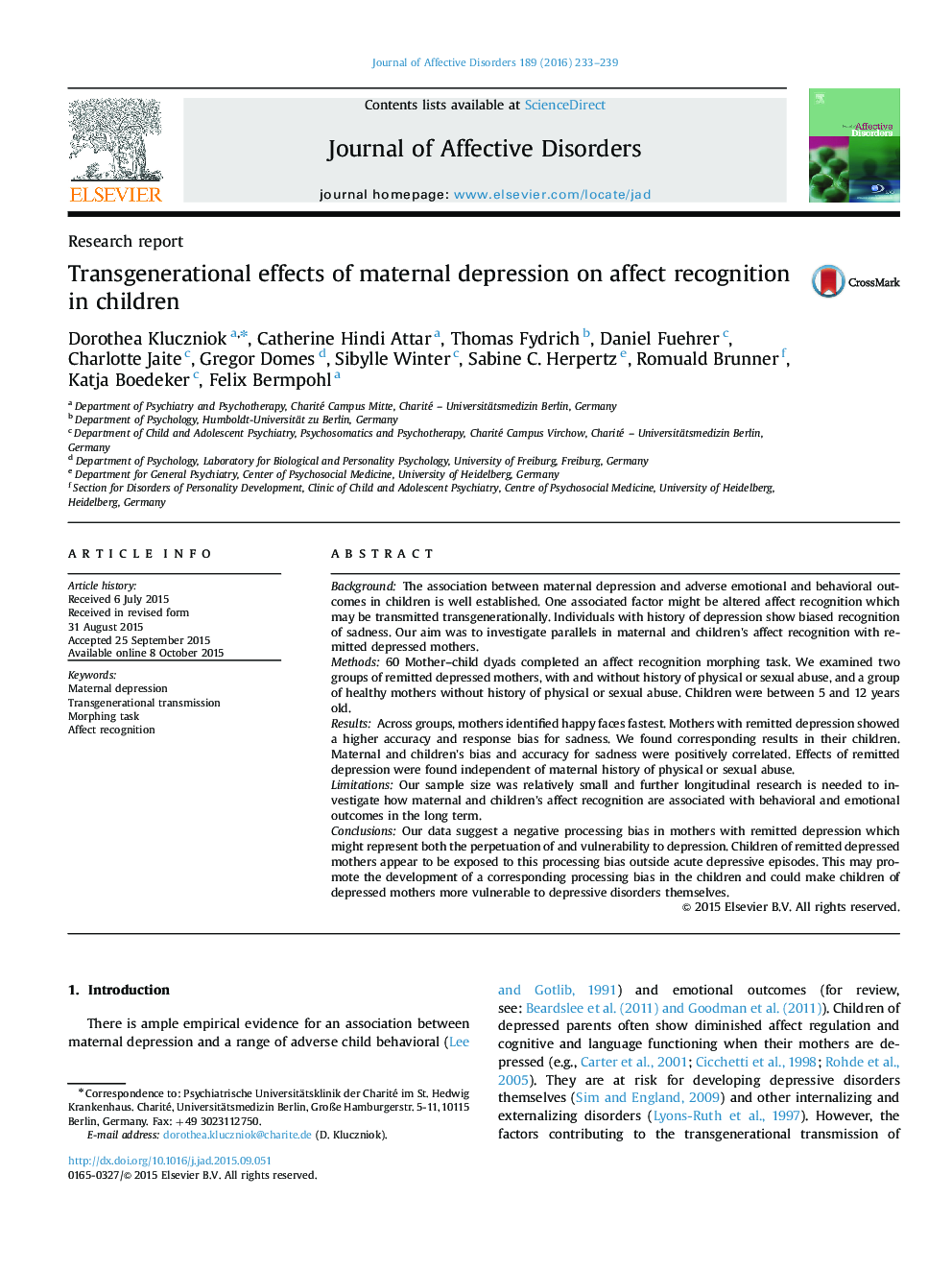| Article ID | Journal | Published Year | Pages | File Type |
|---|---|---|---|---|
| 6230891 | Journal of Affective Disorders | 2016 | 7 Pages |
â¢In remission, mothers with depression show a negative processing bias.â¢Their children show parallel alterations in their affect recognition.â¢Mothers with remitted depression with or without history of abuse do not differ.
BackgroundThe association between maternal depression and adverse emotional and behavioral outcomes in children is well established. One associated factor might be altered affect recognition which may be transmitted transgenerationally. Individuals with history of depression show biased recognition of sadness. Our aim was to investigate parallels in maternal and children's affect recognition with remitted depressed mothers.Methods60 Mother-child dyads completed an affect recognition morphing task. We examined two groups of remitted depressed mothers, with and without history of physical or sexual abuse, and a group of healthy mothers without history of physical or sexual abuse. Children were between 5 and 12 years old.ResultsAcross groups, mothers identified happy faces fastest. Mothers with remitted depression showed a higher accuracy and response bias for sadness. We found corresponding results in their children. Maternal and children's bias and accuracy for sadness were positively correlated. Effects of remitted depression were found independent of maternal history of physical or sexual abuse.LimitationsOur sample size was relatively small and further longitudinal research is needed to investigate how maternal and children's affect recognition are associated with behavioral and emotional outcomes in the long term.ConclusionsOur data suggest a negative processing bias in mothers with remitted depression which might represent both the perpetuation of and vulnerability to depression. Children of remitted depressed mothers appear to be exposed to this processing bias outside acute depressive episodes. This may promote the development of a corresponding processing bias in the children and could make children of depressed mothers more vulnerable to depressive disorders themselves.
